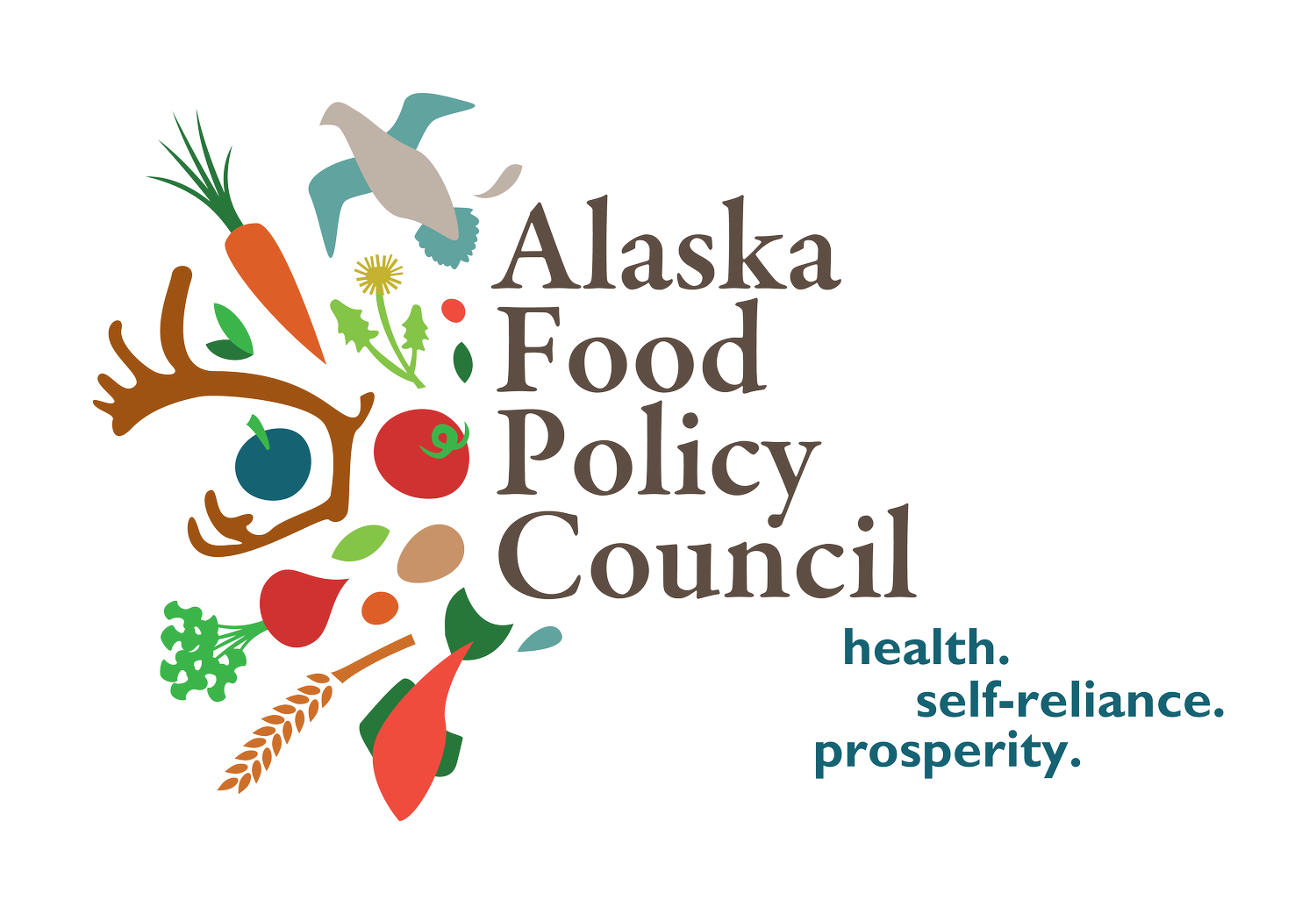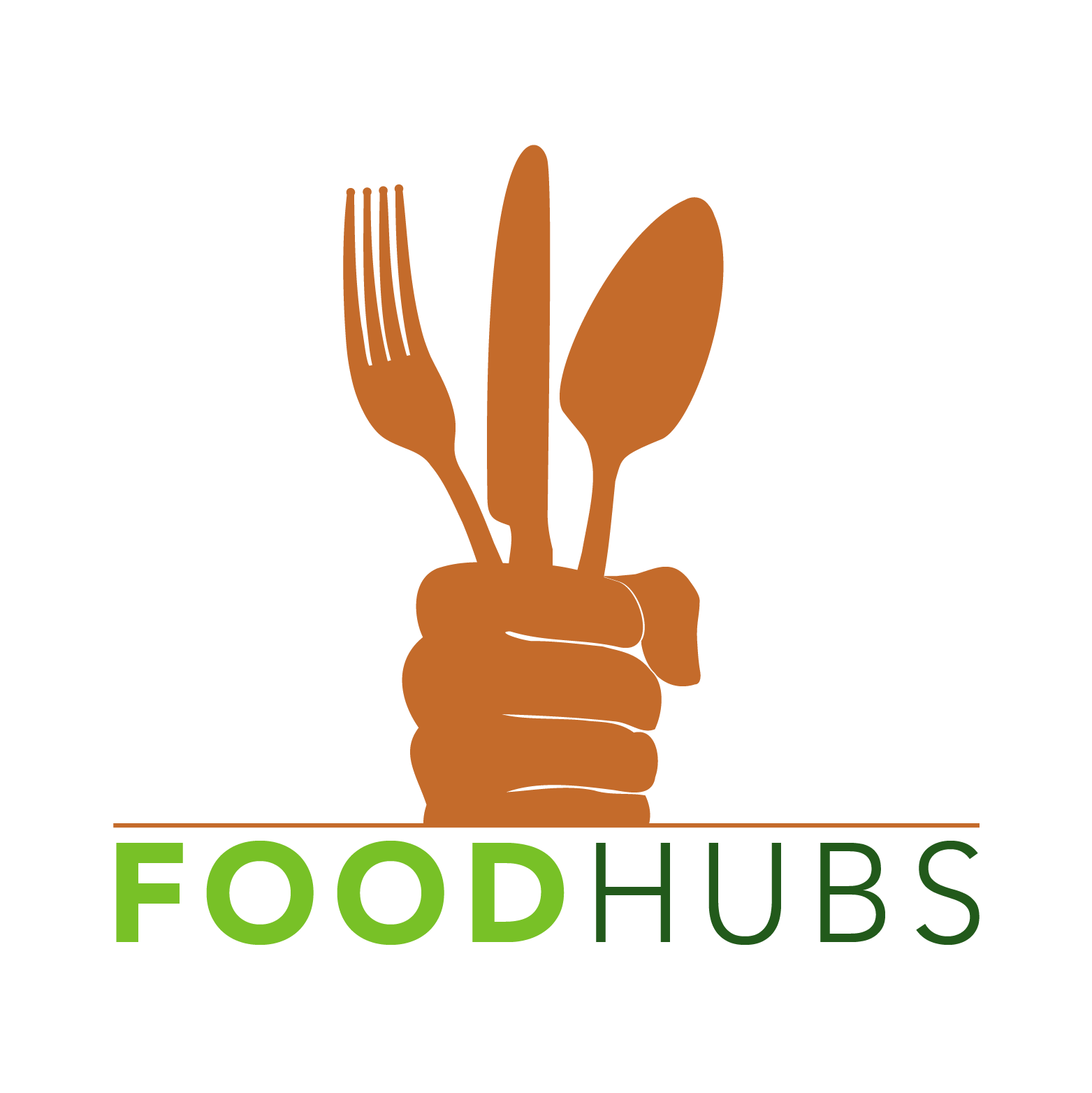Food Hub Working Group: Progress and Possibilities
By Sundance Visser, Food Hub Working Group Coordinator & Finance and Operation Director, AFPC
Have you heard about the latest report released by the Alaska Food Policy Council and our partners Ken Meter of Crossroads Resource Center, Alaska’s DEC Food Safety & Sanitation Program, and multiple food hub operators? “How the Alaska “Food Hub” Network Can Best Move Forward” reflects over a year of hard work, and, with its cheerful, bright graphics and thoughtful recommendations, it kickstarts future network growth. Additionally, we are sharing our “Food Hub Operations and Safety Manual” as a section of the Alaska Farmer’s Market Association’s Farmers Market Toolkit.
As part of the Alaska Food Hub Working Group, I want to share a little background about the project and our work over the past year. Also, check out the Food Hub Working Group page and the first blog post of the project.
In autumn 2022, AFPC was awarded an 18-month planning grant: Alaska Food System Research and Knowledge Sharing: Growing Connections for Local Food to facilitate food system research and educational opportunities, to increase viable and sustainable local food production and distribution through a network for Alaskan Food Hubs.
Photo Credit: Alaska Food Hub
Maybe you’ve heard the term “food hub” kicked around lately, and if you’re not sure exactly what that means, especially in Alaska, you’re not alone! A food hub is defined by the USDA, as “a centrally located facility with a business management structure facilitating the aggregation, storage, processing, distributions, and/or marketing of locally/regionally produced food products.” However, this definition can be adapted considerably to fit local needs. Ken Meter uses the term “food hub” in quotations in the report because not every organization participating considers itself a food hub. Additionally, the term could limit a community’s creativity in finding local or regional food system solutions by focusing expectations on profitability, commercial activity, or infrastructure that are not suitable for that locale. All members of the working group agree that using the term “food hub network” is a convenient short-hand for communication and coordination.
Over the past year and a half, six existing and several emerging food hubs joined the monthly working group meetings to discuss individual challenges, share news and opportunities, and generally get to know each other. We invited national and Alaskan guest speakers to spark ideas. All of the participating food hubs are run by incredible teams, and I was continually inspired by their work. Though the organizations have different business models and structures, they all share a strong commitment to equity, access, and community support.
According to report author Ken Meter, "This report represents a crucial step towards building a more resilient and effective food hub network in Alaska. By identifying common challenges and offering innovative solutions, we can ensure the continued growth and success of our local food systems."
The report lists concrete steps and recognizes limitations to operating food hubs in Alaska. Production consistently emerged as the biggest challenge. For the food hub network, sharing products or infrastructure (even software) is not a priority at this stage. As the working group facilitator, I saw the most network growth in a shift toward more openness and interest in other hubs as the months progressed. At the beginning of each meeting, answering the question “What’s going on this month at your food hub?” took more and more time as members got to know each other.
Photo Credit: Salt and Soil Marketplace
In November, at the 2023 Alaska Food and Farm Festival, all of the food hubs met in person, some for the first time, in Anchorage. Working Group members presented at the well-attended “Alaska Food Hub Showcase,” and Ken Meter facilitated an effective discussion at the session titled “Next Steps for the Alaska Food Hub Network.” The group spent a morning touring Arctic Harvest Delivery’s Anchorage warehouse and commented that getting together in person was a highlight of the trip.
The group will continue to convene monthly in 2024 to share knowledge and build trust among members. If you are interested in learning more and joining the conversation, let us know by filling out the interest form on our Working Group information page.








